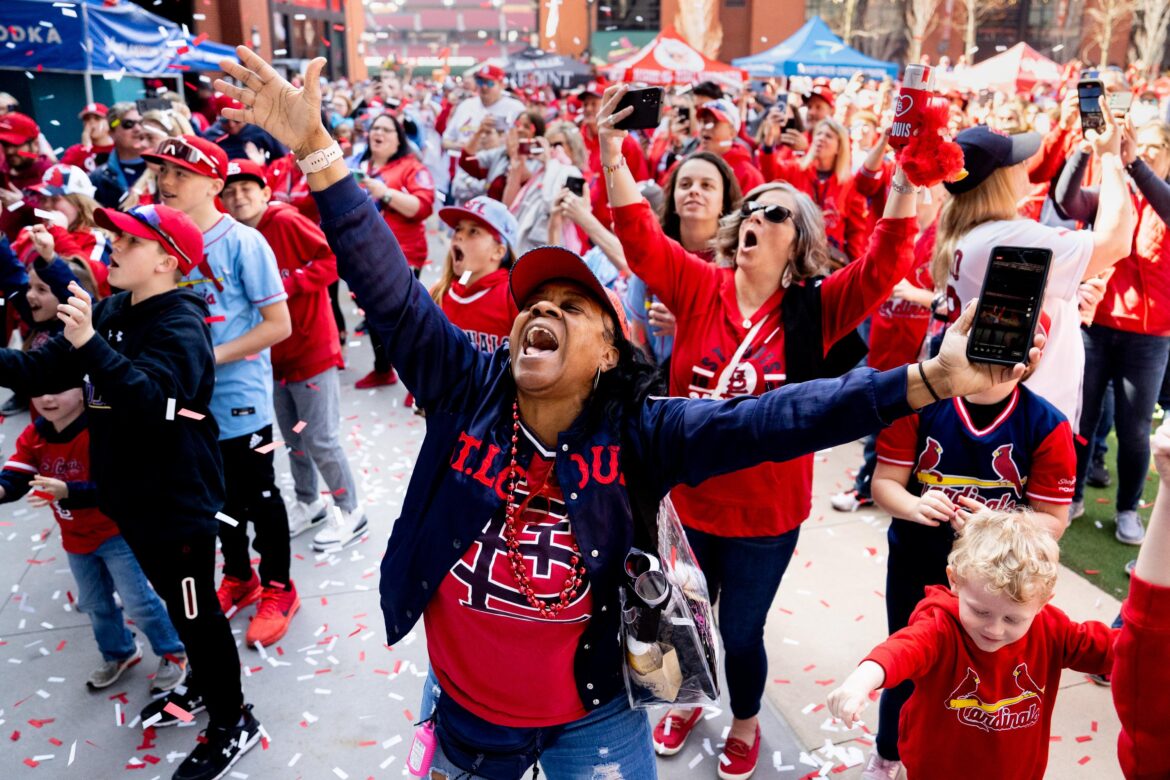In a wave of online backlash, St. Louis Cardinals fans have voiced their concerns regarding ESPN commentator Eduardo Pérez following his recent appearance on Sunday Night Baseball. The frustrations erupted during a broadcast that highlighted the team’s struggles, with many fans taking to social media to express their discontent over Pérez’s analysis and comments. As the Cardinals navigate a challenging season, the criticism directed at the former Major League Baseball player underscores the intense passion and dedication of the Redbird faithful. This article explores the reasons behind the fans’ reactions and examines the broader context of player and commentator scrutiny within the world of sports broadcasting.
St. Louis Cardinals Fans Express Outrage Over Eduardo Pérez’s Commentary on ESPN Broadcast
During the latest ESPN Sunday Night Baseball broadcast, fans of the St. Louis Cardinals found themselves voicing their discontent over commentator Eduardo Pérez’s remarks. Many viewers took to social media, expressing their frustration over what they perceived as biased commentary that failed to accurately represent the team’s challenges and performance. The negative feedback was swift, as fans had expected a fair and balanced analysis, especially given the significance of the game for the Cardinals’ playoff aspirations. Key points of contention included:
- Pérez’s comments: Fans argued that his critique was overly harsh and lacked nuance.
- Misinterpretation of statistics: Some felt he misrepresented player stats, skewing the narrative against the Cardinals.
- Subjective tone: Viewers noted a tendency towards personal opinions rather than objective analysis.
This fallout highlights a growing tension between the broadcast team and the passionate Cardinals fanbase, who pride themselves on their loyalty and deep connection to the team. Fans have called for ESPN to reassess its commentator lineup, advocating for voices that better understand and represent the organization’s legacy and the sentiments of its supporters. The sentiment among fans is clear: they want insight from analysts who appreciate the nuances of their beloved team’s journey. In a recent informal poll conducted on social media, here’s what fans had to say about Pérez’s commentary:
| Opinion | Percentage |
|---|---|
| Agree with Pérez | 15% |
| Disagree with Pérez | 70% |
| No strong opinion | 15% |
Analyzing the Fan Reaction: What Went Wrong During the Sunday Night Baseball Game
The recent Sunday Night Baseball broadcast featuring the St. Louis Cardinals has ignited a firestorm among fans, particularly aimed at commentator Eduardo Pérez. Social media platforms exploded with frustration over Pérez’s commentary, which many deemed overly critical and lacking in insight during a pivotal game. Fans took to Twitter and Facebook, expressing their disappointment with comments like:
- Advertisement -
- “Pérez just doesn’t get how much this game means to us!”
- “His analysis feels out of touch with what we see on the field!”
- “Can we please get someone who understands Cardinals baseball?”
In a tense game that saw the Cardinals struggle in the later innings, fans felt that Pérez’s focus on blame overshadowed the more pressing issues that plagued the team. Frustrated viewers pointed to several specific moments that they felt warranted a more balanced approach to commentary:
| Key Moment | Pérez’s Commentary | Fan Reaction |
|---|---|---|
| Late-Inning Collapse | “This is typical of the Cardinals; they always choke under pressure.” | Angry Tweets: “This isn’t a choke; it’s a rebuilding year!” |
| Pitching Changes | “Why would they make that change? This coaching staff is clueless.” | Fans Defend Coaches: “Every decision can’t be dissected!” |
Moving Forward: Recommendations for Enhancing Fan Engagement in Future Broadcasts
To foster a deeper connection between broadcasters and fans, it is crucial to implement strategies that actively engage audiences during live broadcasts. This can be achieved through the integration of real-time social media interaction, allowing fans to share their thoughts and feedback as the game unfolds. Additionally, broadcasters could consider the use of fan polls and questions that can be addressed during the broadcast, creating a more inclusive atmosphere and making viewers feel like a part of the conversation. Enhancing visual graphics displaying fan sentiment in real-time could also amplify the interactive experience.
Furthermore, featuring insider segments that explore fan cultures, such as unique traditions and celebrations among different franchises, can provide a richer narrative during games. Incorporating live video feeds from fan sections could offer a more dynamic feel and personalize broadcasts. A commitment to transparency in commentary-where announcers openly discuss their biases and opinions-could also foster trust and understanding between broadcasters and loyal fans. As the game evolves, so too must the strategies to better serve an ever-passionate audience.
In Conclusion
In conclusion, the recent backlash against Eduardo Pérez by St. Louis Cardinals fans underscores the passionate and, at times, contentious relationship that exists between players, commentators, and the devoted fan base. The intense reactions during ESPN’s Sunday Night Baseball reflect the deep-rooted loyalty Cardinals supporters have for their team and the high expectations they hold for those who speak on their behalf. As the season progresses, the Cardinals and their followers will undoubtedly continue to navigate the complex dynamics of fandom, sports media, and the intricate narratives woven through each game. Whether the criticism of Pérez will foster meaningful dialogue or simply serve as a fleeting moment in a long baseball season remains to be seen. What is clear, however, is that the pulse of Cardinals Nation remains strong, and their voices, loud and clear, will not go unnoticed.
- Advertisement -


